The Complete Guide to Decaf Coffee Beans: Everything You Need to Know
Decaf coffee beans have gained popularity among coffee lovers who want to enjoy the deep, rich flavors of coffee without the caffeine buzz. But not all decaf coffee is created equal understanding how it's made, its quality, and how it compares to regular coffee is essential for choosing the best option.
In this guide, we will explore everything about decaf coffee beans, from the Swiss Water Process to organic decaf coffee options and where to find whole bean decaf coffee for the freshest brew. We will also introduce you to Bazan Coffee’s premium selections, which, although not decaf, offer a naturally smooth and low-acid experience with unique tropical fruit notes.
What Are Decaf Coffee Beans?
Decaf coffee beans are regular coffee beans that have undergone a caffeine removal process. While decaffeination removes at least 97% of the caffeine, it does not eliminate it entirely most decaf coffee still contains 2-5 mg of caffeine per cup, compared to an average of 95 mg in regular coffee.
Decaffeination processes impact the flavor, aroma, and texture of the final brew, which is why selecting the best decaf coffee beans is crucial for a satisfying coffee experience.

How Are Decaf Coffee Beans Made?
There are multiple ways to remove caffeine from coffee beans, but not all methods maintain the coffee’s original flavor integrity. The most common decaffeination processes include:
1. Swiss Water Process (Best for Organic Decaf Coffee Beans)
The Swiss Water Process is the most natural method for decaffeinating coffee. It relies on water, time, and temperature rather than chemical solvents, making it the preferred choice for those seeking organic decaf coffee beans.
-
Green coffee beans are soaked in hot water, which extracts caffeine and flavor compounds.
-
The caffeine is removed using activated charcoal filters.
-
The flavor-rich water is then used to reintroduce flavors into new beans without caffeine.
This method preserves the rich aroma and taste of coffee while ensuring zero chemical residues, making Swiss Water decaf coffee beans a top-tier choice.
2. Carbon Dioxide (CO₂) Method
This method uses pressurized carbon dioxide to extract caffeine from coffee beans while preserving essential oils and flavors.
-
Green coffee beans are soaked in water.
-
Supercritical CO₂ is passed through the beans, dissolving caffeine.
-
The caffeine-laden CO₂ is then removed, leaving the beans flavorful but nearly caffeine-free.
This is a safe and effective method but is often more expensive than other decaffeination techniques.
3. Solvent-Based Decaffeination (Ethyl Acetate or Methylene Chloride)
Some decaf coffee beans undergo decaffeination using solvents like ethyl acetate or methylene chloride.
-
The beans are steamed to open their pores.
-
A chemical solvent extracts the caffeine.
-
The beans are then dried and roasted.
While deemed safe for consumption, solvent-based decaffeination can alter the taste profile of coffee. It is less desirable for specialty coffee lovers who prioritize natural processes like the Swiss Water Process.

Best Decaf Coffee Beans to Try
If you're searching for the best decaf coffee beans, consider these options based on flavor, processing method, and freshness:
1. Whole Bean Decaf Coffee for Maximum Freshness
Grinding your own coffee just before brewing ensures maximum flavor extraction. Look for whole bean decaf coffee that is freshly roasted rather than pre-ground to maintain the aroma, body, and complexity of the coffee.
2. Organic Decaf Coffee Beans for a Chemical-Free Experience
Organic decaf coffee beans are grown without pesticides and decaffeinated using natural methods like the Swiss Water Process. These beans offer a clean and pure coffee experience while supporting sustainable farming practices.
3. Dark Roast Decaf Coffee for Bold Flavor
Some people worry that decaf coffee tastes weak, but dark roast decaf coffee maintains a bold, smoky character while eliminating caffeine. Look for beans that undergo slow roasting to enhance sweetness and reduce bitterness.
Can You Buy Decaf Coffee Beans?
Yes, decaf coffee beans are widely available from specialty roasters, supermarkets, and online stores. You can find options ranging from light roast to dark roast, single-origin to blends, and organic to flavored decaf varieties.
When choosing decaf coffee, look for fresh roast dates, natural decaffeination methods, and flavor descriptions that align with your taste preferences.
Does Decaf Coffee Still Have Caffeine?
One of the most common misconceptions is that decaf coffee is completely caffeine-free. While decaf coffee does have caffeine, it contains significantly less than regular coffee:
-
Regular Coffee (8 oz cup) → 95-120 mg of caffeine
-
Decaf Coffee (8 oz cup) → 2-5 mg of caffeine
While not completely caffeine-free, decaf coffee is a great option for those who want to reduce their caffeine intake while still enjoying the taste of coffee.

Bazan Coffee: A Better Alternative to Decaf
At Bazan Coffee, we do not offer decaf coffee, but we provide something even better naturally low-acid, tropical fruit-flavored coffee with a smooth, refined body.
If you are looking for a flavorful coffee alternative without the bitterness, our Fine Robusta – Krong Năng is an excellent choice. It delivers a bold yet balanced coffee experience with natural caramelized sweetness, making it an ideal option for those who want coffee without excessive acidity or bitterness.
The New Revolution: Fine Robusta from Vietnam
For years, Robusta was considered the lesser bean compared to Arabica, but Vietnam’s Fine Robusta is changing the game. Through high-altitude cultivation, advanced fermentation techniques, and meticulous processing, Bazan Coffee’s Fine Robusta – Krong Năng delivers a smooth, complex, and naturally sweet coffee experience.
What Makes Fine Robusta – Krong Năng Special?
-
Grown at 650m in Krong Năng, Đắk Lắk, Vietnam, where the ideal climate and soil conditions enhance coffee quality.
-
72-hour natural anaerobic fermentation, unlocking deep caramel, honey, and tropical fruit flavors while reducing bitterness.
-
Naturally low-acid and full-bodied, perfect for espresso lovers who want a smooth yet bold coffee.
-
Thick crema and balanced flavors, making it an excellent choice for espresso, lattes, or cold brew.
Not Just Robusta – The Best of Both Worlds
If you prefer a coffee with fruity brightness and caramel undertones, our Special Vietnam Blend offers a smooth balance of high-altitude Arabica and Fine Robusta, creating a refined and versatile coffee.
For those who appreciate a clean, sophisticated espresso, our Specialty Arabica – Cầu Đất is a fully washed Arabica with notes of bell pepper, spices, and caramel, grown at 1,550m in Đà Lạt.
Which Coffee Should You Try?
-
For a bold, naturally sweet espresso alternative to decaf → Fine Robusta – Krong Năng
-
For a balanced, smooth coffee with fruity caramel notes → Special Vietnam Blend
-
For a refined, complex espresso with spice and caramel depth → Specialty Arabica – Cầu Đất
A Better Coffee Alternative Awaits
Decaf coffee may reduce caffeine intake, but the best coffee experiences come from high-quality beans. If you are looking for a naturally smooth, flavorful, and well-balanced coffee, Bazan Coffee offers an excellent alternative to decaf.
Shop Bazan Coffee today and discover the depth, complexity, and natural sweetness of Vietnam’s Finest Specialty Coffee.




